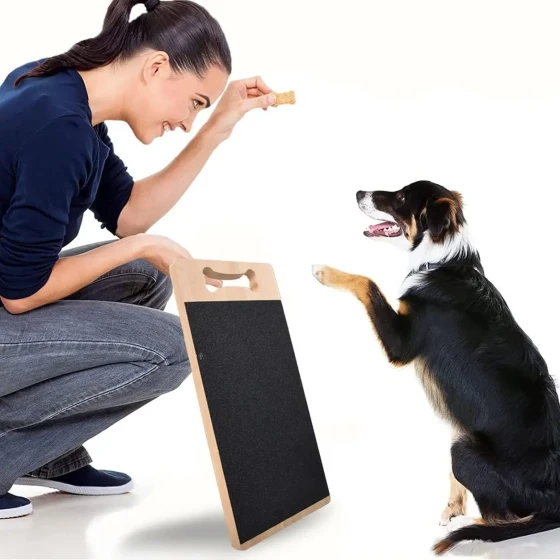How to Understand the Intelligence Issues of Dogs

Whether a dog is smart is judged from multiple aspects
The intelligence level of a dog is not decided solely by how fast it learns; factors such as nature and obedience ability are also part of the criteria. Many dogs learn slowly not because they are not smart enough, but possibly because their personality means they are not very interested in certain training. Also, dogs with low obedience naturally are harder to train. However, these issues can be somewhat changed through training.
1. Basic judgment of dog intelligence
1. Intelligence testing of dogs usually involves three aspects
The judgment of dog intelligence typically tests the dog's instinctual nature, obedience ability, and self-learning experience.
2. Due to breed differences, some comparisons are not easy
Each dog breed has its unique personality and instinct, which are usually innate. Changing these may be relatively difficult, and some are basically impossible to change. Comparing which breed is smarter is not very meaningful.
3. Dog's self-learning ability
For dogs of the same kind facing the same problem multiple times, some dogs may find a good solution after 2-3 attempts, while others cannot adjust by learning. This shows the difference in their learning experience.
4. Dog obedience is also a criterion for judging intelligence
Obedience means how well a dog follows our commands, or as commonly said, how well-behaved it is. For example, whether the dog quickly responds and runs to us when called by name, or whether it performs the corresponding actions upon commands.
2. A simple small test of a dog's intelligence
Preparation and test actions
First, prepare a table higher than the dog's line of sight, then block the front of the table with obstacles so the dog cannot see under the table. Next, take out a toy or food that interests the dog and lower it from above into the space under the table while observing the dog's reaction.

Many problems can be improved through training
Judgment
A dog that sees an interesting object fall from its owner's hand might think it has fallen under the table and quickly crawl under the table to search. These dogs react quickly but may not have good observational ability. Some dogs may continuously bark at the table or even jump on it because they judge the food is actually on the table. These dogs have better observational skills and tend to think more calmly, but training them requires maintaining their excitement level.
3. How to make a dog better
1. Postnatal effort in training to correct bad behaviors
A large part of dog intelligence is related to its breed, but dogs can make great progress through training and improvement, so guided education usually has great potential for advancement.
2. Lineage also affects dog intelligence to some extent
Lineage is also an important factor influencing intelligence. If breeding methods are not appropriate, even supposedly smart breeds like Border Collies may have less ideal individuals. Although some native dogs may not look good, some have surprisingly high intelligence, so they should be treated equally.
3. Try to improve dog obedience to enhance training efficiency
Obedience is a very important factor. Dogs with high obedience make training easier because they better cooperate with us, making our tasks more effortless.

-560x560.webp)
-560x560.webp)

-560x560.webp)
